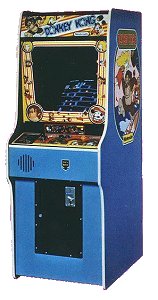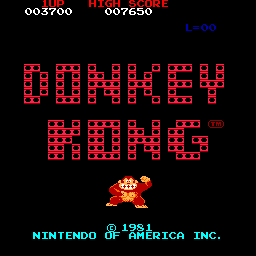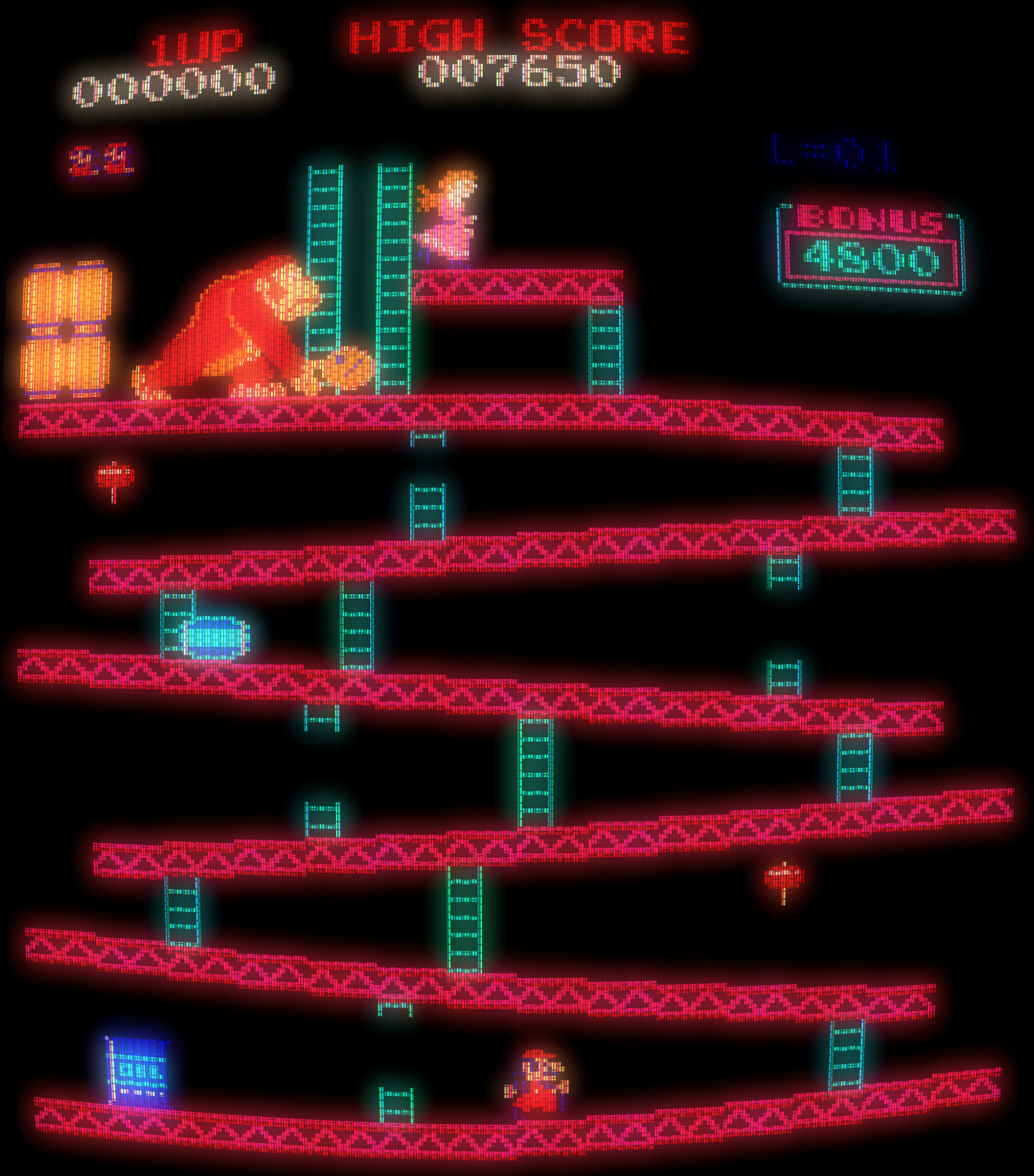 The Game: An oversized gorilla kidnaps Mario’s girlfriend and hauls her up to the top of a building which is presumably under construction. You are Mario, dodging Donkey Kong’s never-ending hail of rolling barrels and “foxfires” in your attempt to climb to the top of the building and topple Donkey Kong. You can actually do this a number of times, and then the game begins again with the aforementioned girlfriend in captivity once more. (Nintendo, 1981)
The Game: An oversized gorilla kidnaps Mario’s girlfriend and hauls her up to the top of a building which is presumably under construction. You are Mario, dodging Donkey Kong’s never-ending hail of rolling barrels and “foxfires” in your attempt to climb to the top of the building and topple Donkey Kong. You can actually do this a number of times, and then the game begins again with the aforementioned girlfriend in captivity once more. (Nintendo, 1981)
Memories: Make no mistake about it, Donkey Kong is the point of origin of one of today’s largest video game empires, both fictional and real. The character of Mario appeared again in numerous arcade games.
 Donkey Kong Junior turned the tables by making Mario the bad guy. Instead of playing the part of Mario, you were Donkey Kong’s adorable kid, struggling to free Papa in, arguably, the only really good Donkey Kong spinoff there was.
Donkey Kong Junior turned the tables by making Mario the bad guy. Instead of playing the part of Mario, you were Donkey Kong’s adorable kid, struggling to free Papa in, arguably, the only really good Donkey Kong spinoff there was.
Donkey Kong 3 was the last arcade spinoff to feature the big ape, once again in the bad guy role. As Stanley the Gardener, your mission was to ward off an endless wave of deadly insects, protect your garden, and chase Donkey Kong off the screen.
Mario Bros. was Mario’s first solo outing, with twin brother Luigi in tow. The object of the game was to scour the sewers of dangerous turtles (?!), grab some loose change along the way, and avoid floating fireballs (distant cousins of the foxfires in Donkey Kong?). Two players could help each other out. A new version of Mario Bros. was included with a new console called the Nintendo Entertainment System a year or so later. These days, Mario has given up ape-chasing and turtle-kicking for car racing, cleaning up fantasy worlds, and many other new careers. Mario is Nintendo’s empire.
Coleco was the initial licensee for Nintendo’s range of games, and they ported it to many home video game platforms. A faithful rendition of Donkey Kong was packed in with new ColecoVision systems, but the game fared less well on such systems as the omnipresent Atari 2600.
Coleco included a battery-operated table-top version of Donkey Kong in its second wave of their popular portable games, but of all the Coleco portables, this version of  Donkey Kong was the weakest one there was. For a game that depended on fluid motion and being able to tell where Mario was in relation to the rolling barrels, an L.E.D. display was not kind to Donkey Kong, and the playfield was barely readable. A Coleco portable Donkey Kong Junior was made just before the company gave up on its line of L.E.D. arcade games, and is rather difficult to find now.
Donkey Kong was the weakest one there was. For a game that depended on fluid motion and being able to tell where Mario was in relation to the rolling barrels, an L.E.D. display was not kind to Donkey Kong, and the playfield was barely readable. A Coleco portable Donkey Kong Junior was made just before the company gave up on its line of L.E.D. arcade games, and is rather difficult to find now.
Coleco also produced PVC figures of Donkey Kong characters, including Mario, Donkey Kong Junior, and the big D.K. himself. One web page couldn’t cover every Mario-themed trinket that’s  ever been made, but other merchandise from the pre-NES era included a board game, stickers, and a musical tribute from Buckner & Garcia (the musicians behind “Pac-Man Fever”) called “Do The Donkey Kong“. (Unlike “Pac-Man Fever”, however, this song didn’t even chart.)
ever been made, but other merchandise from the pre-NES era included a board game, stickers, and a musical tribute from Buckner & Garcia (the musicians behind “Pac-Man Fever”) called “Do The Donkey Kong“. (Unlike “Pac-Man Fever”, however, this song didn’t even chart.)

